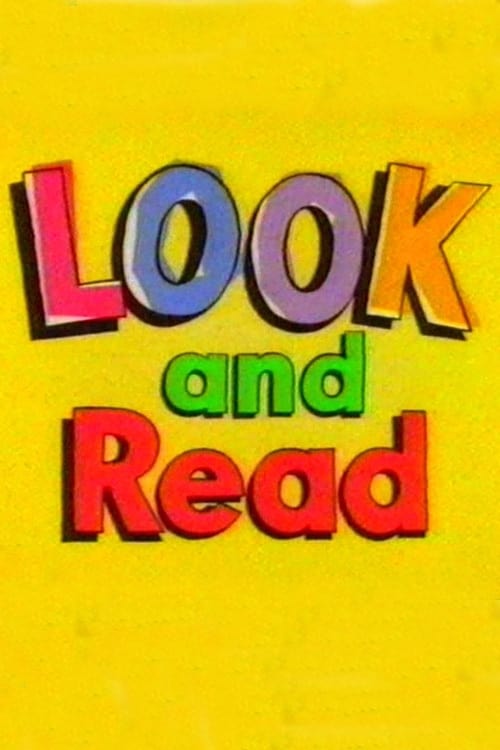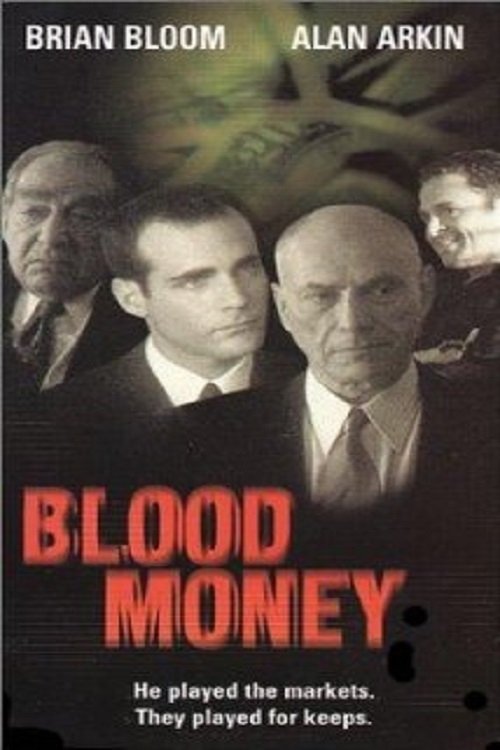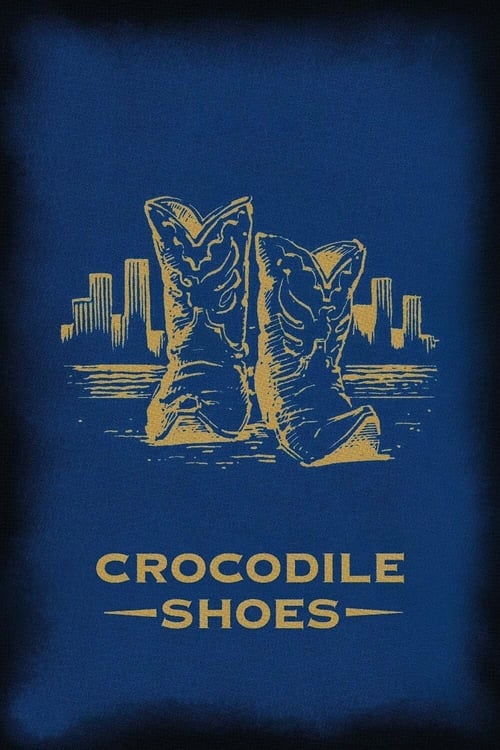
BBC One
Featured Show:
Teddy Edward
Teddy Edward is a British television series for children. It was based on the books by Patrick and Mollie Matthews, about the travels of a teddy bear. The series of 13 episodes was transmitted in 1973, but often repeated until 1980. Each episode consisted of a story narrated by Richard Baker, illustrated by still photographs of Teddy Edward and his friends. Teddy Edward's travelling companions included Jasmine the Rabbit, Snowytoes the Panda and Bushy the Bushbaby. The series was directed by Howard Kennett. The distinctive theme tune was "Glad Gadabout" by Johnny Scott.
BBC One TV Shows
2484 shows • Page 122 of 125
 0
0Teddy Edward
Teddy Edward is a British television series for children. It was based on the books by Patrick and Mollie Matthews, about the travels of a teddy bear. The series of 13 episodes was transmitted in 1973, but often repeated until 1980. Each episode consisted of a story narrated by Richard Baker, illustrated by still photographs of Teddy Edward and his friends. Teddy Edward's travelling companions included Jasmine the Rabbit, Snowytoes the Panda and Bushy the Bushbaby. The series was directed by Howard Kennett. The distinctive theme tune was "Glad Gadabout" by Johnny Scott.

Look and Read
Look and Read is a BBC television programme for primary schools, aimed at improving children's literacy skills. The programme presents fictional stories in a serial format, the first of which was broadcast in 1967 and the most recent in 2004, making it the longest running nationally broadcast programme for schools in the United Kingdom. The series remains popular among school children, and has also gained a cult following among those who have grown up with it.

James the Cat
James the Cat was a children's series created by Kate Canning and produced by Jan Clayton with Grampian Television. It chronicles the many events which take place at the Cornerhouse between James and his new friends. Fellow characters include: Mrs. Lavender, a snail; Frida, a kangaroo; Citroen, a French frog; Rocky, a dimwitted rabbit; and Dennis, a pink fire-breathing Welsh-accented Chinese dragon. There is also a beehive in the garden at the Cornerhouse. Next door are Ma and Pa Rat, and their rat children. The show changes quite a bit between the two seasons. In the first, James is a newcomer to the garden at the Cornerhouse, and must learn to live with the other animals there. In the first episode of the second season, James becomes a diplomat. In subsequent episodes, he and the others travel to distant lands or receive important visitors. Despite the fact that he can't spell, James is a perfect choice for a diplomat, as he is a tuxedo cat, and quite pompous. Each episode runs for about 5 minutes. This show is also notable as the first show to ever air on the United Kingdom version of Nickelodeon, at 7:01am on 1 September 1993. And it also premiered on PBS Kids Sprout.
 0
0Jet Set
Jet Set was a BBC National Lottery game show that was broadcast on BBC One from 20 January 2001 to 8 August 2007. It was presented by Eamonn Holmes.
 0
0Starting Out
Starting Out is an Australian television soap opera made for the Nine Network by the Reg Grundy Organisation in 1983. The series was the network's replacement for The Young Doctors, set at a medical college with an emphasis on young people getting their first experience of living away from home and leading independent lives. The youthful cast included Gary Sweet, David Clencie, Nikki Coghill, Tottie Goldsmith and Peter O'Brien, whilst more experienced cast members complementing the young leads included Maurie Fields, Gerard Maguire, Jill Forster and Anne Phelan. The series failed to gain sufficient ratings and was quickly cancelled and removed from the schedules after five episodes. The remaining eighty episodes were screened out-of-ratings in late 1983.
 0
0Catchword
Catchword was a daytime word game show first shown on BBC1 Scotland from 17 April 1985 until 2 April 1986, hosted by Gyles Brandreth, and then network on its sister channel BBC2 from 5 January 1988 until 23 May 1995, hosted by Paul Coia
 0
0Dooby Duck's Disco Bus
Dooby Duck's Disco Bus was a children's puppet show presented by Dooby Duck, a puppet duck with a shiny showbiz jacket, and a pink bow-tie who introduced puppets singing contemporary songs of the day. Dooby signed off each show laughing and saying 'Dooby Dooby Dooby Dooby Quack Quack' whilst admiring a picture of Tanita Tikaram. The character first appeared as a segment on the children's sketch programme 'The Satellite Show'.
 0
0Beat the Teacher
Kids finally get the chance to get their own back on their teachers by competing against them in a noughts-and-crosses based quiz. Devised by Clive Doig, made by BBC Television and shown as part of Children's BBC on weekdays at teatimes. It ran from 1984 until 1988.

The National Lottery: In It to Win It
The National Lottery: In It to Win It, is a BBC National Lottery game show broadcast on BBC One since 18 May 2002. The programme is hosted by Dale Winton. It is the longest running game show to accompany UK lottery draws - as of 2013, it has been running for eleven years.
 0
0For Richer...For Poorer
For Richer...For Poorer was a 1975 BBC television pilot starring Harry H Corbett as Bert, a union shop-steward who worships Stalin and has dreams of becoming a major politician. Part of a Comedy Playhouse season, this one-off was broadcast on BBC1, on Wednesday 25 June 1975. The show had many overlaps with Til Death Us Do Part. It had the same writer and producer. Both shows took their titles from the traditional wedding vows, and Bert was seen as the left-wing equivalent of Alf Garnett. The show is missing from the television archives.
 0
0Picture Book
Picture Book was a BBC children's TV series created by Freda Lingstrom and first broadcast in 1955. It was the Monday programme in the Watch with Mother cycle. Initially introduced by Patricia Driscoll, the programme encouraged children to make things; Driscoll's catch phrase was "Do you think you could do this? – I am sure you could if you tried". She left the programme in 1957 to play the part of Maid Marian in the ITV series The Adventures of Robin Hood, and was replaced by Vera McKechnie. The show's opening theme tune was Badinerie, the final movement of Johann Sebastian Bach's Orchestral Suite No. 2 in B minor. Each Monday, Driscoll or McKechnie would open the Picture Book at a relevant page. Sometimes it would be shown to the camera at a distance, making the pages' content often brief and obscure. Alternatively, the presenter would simply tell the children what the next item would be, sometimes with a still photograph as a continuity link. It was something different every week. The 1963 series featured Sausage, a puppet dachshund who could speak a few words and generally shared the presentation with Vera McKechnie. The 1987 VHS release by BBC Video featured an episode including Sausage the puppet dog, the Adventures of the Jolly Jack Tars, making paper lanterns, growing mustard and cress, and a regular cartoon of a little girl called Bizzy Lizzy, who had a magic flower. The 'Bizzy Lizzy' inserts for Picture Book were narrated by Maria Bird, who also narrated 'Andy Pandy' 'The Woodentops' and 'The Flowerpot Men'. A further episode was included on a Watch with Mother 2 video released in 1989. The main feature involved the creation of hills and a valley using a sand tray, an item featured regularly in the programme. Both episodes were taken from the 1963 series, presented by Vera McKechnie.

Blood Money
Blood Money is a British television serial written by Arden Winch and produced by the BBC in 1981. The series starred Michael Denison as Captain Percival, an operative of British Special Intelligence, who works with Scotland Yard to solve the kidnapping of the young son of the Administrator General of the United Nations by a terrorist cell. The six-part serial was produced by Gerard Glaister, previously responsible for the Second World War drama series Secret Army. Blood Money also reunited a number of former Secret Army cast members - Bernard Hepton played the Chief Superintendent of the police force who worked with Captain Percival, while Juliet Hammond-Hill and Stephen Yardley also appeared as two of the terrorists. The character of Captain Percival later appeared in two more BBC thriller serials - Skorpion in 1983, involving the pursuit of an assassin in Scotland, and Cold Warrior in 1984, an eight-part collection of individual stories.

Bits and Bobs
Bits and Bobs is a children's television programme which is produced and broadcast by the BBC. It is aired on CBeebies. The show is filmed at several notable Scottish attractions and locations. It features two balls of fluff: Bits and Bobs who live and travel in a "car" called Trug. Using Trug's eyepiece they explore the world and try to work out what different items are. They have the catchphrase "If I don't know and you don't know, and you don't know and I don't know; do you know?". Another phrase that is used is mentioned during sped up footage of them travelling to their next destination "Hold onto your Bobs, Bits" and vice-versa. They continuously nose each other by rubbing their noses. At the bottom of Trug is a secret compartment where Bits and Bobs keep their most prized objects. They access this compartment with a crane fueled by sugar cubes. Bits and Bobs also is English slang for a collection of small items too numerous or varied to name individually. It originated from carpenters' tool kits containing parts for a drill, with bits used for making holes while bobs are routing or screwdriving drill attachments. Children laugh at the balls' mistakes at the end.
 0
0Watch with Mother
'Watch with Mother' was a cycle of children's programmes created by Freda Lingstrom. Broadcast by BBC Television from 1952 until 1973, it was the first BBC television series aimed specifically at pre-school children, a development of BBC radio's equivalent 'Listen with Mother', which had begun two years earlier. In accordance with its intended target audience of pre-school children viewing with their mothers, 'Watch with Mother' was initially broadcast between 3:45 pm and 4:00 pm, post–afternoon nap and before the older children came home from school. The choice of 'Watch with Mother' for the title of the series was intended "to deflect fears that television might become a nursemaid to children and encourage 'bad mothering'".

Spotlight
Spotlight is the name given to a BBC Northern Ireland weekly current affairs programme. The programme is aired on BBC1 Northern Ireland at 10.35pm on Tuesday evenings, with a repeat on BBC2. It is available to UK viewers outside of Northern Ireland on BBC iPlayer for a week after the programme. The format usually consists of a half hour report presented on a rotating basis by a small number of reporter/presenters. At present these are Brian Hollywood, Stephen Walker, Darragh MacIntyre and Bobby Friedman. Occasionally the programme consists of a studio format with various reports and panel discussions. Spotlight is well known for its hard-hitting investigations and recently won an Royal Television Society award for Mandy McAuley's dog-fighting investigation. It has launched the careers of a number of high-profile broadcasters, including Jeremy Paxman and Gavin Esler.

Ask the Family
Ask the Family is a British television quiz show originally made by the BBC and broadcast between 1967 and 1984. In 1999, it was revived by the BBC, and in 2005 again returned with a series on BBC2. The show took the form of a quiz contest between two teams, with each team consisting of four members of a single family – two parents and two teenage children. Over the course of the thirty-minute show the teams were asked a variety of general knowledge questions and mental puzzles, with the winner advancing to the next round.
 0
0BBC-3
BBC-3 was a BBC television programme, devised and produced by Ned Sherrin and hosted by Robert Robinson, which aired for twenty-four hour-long editions during the winter of 1965-1966. It was the third in a line of weekend satire-and-chat shows, successor to That Was The Week That Was and Not So Much a Programme, More a Way of Life, though David Frost did not participate in this series. Regular performers included John Bird, Lynda Baron, David Batley, Roy Dotrice, Bill Oddie, and Leonard Rossiter. Gusts included Millicent Martin and Alan Bennett. The musical director was Dave Lee.

Crocodile Shoes II
Crocodile Shoes II is a British six part television series made by the BBC and screened on BBC One in 1996. The follow-up to Crocodile Shoes, it was written by Jimmy Nail with Nick Mead as script associate. Where Crocodile Shoes followed Jed Shepperd on his journey from Newcastle to Nashville and all the way back, Crocodile Shoes II showed Jed trying to prove he didn't kill his manager Ade Lynn. During Crocodile Shoes II Shepperd was also sent to prison, became engaged to Wendy and was nearly killed in an accident.
 0
0Bric-a-Brac
Bric-A-Brac is a British children's television series devised by Michael Cole and Nick Wilson, and starring well known children's television presenter Brian Cant. It was produced by the BBC and originally ran from 1 October until 5 November 1980, with another series from 18 August to 29 September 1982. It was repeated frequently until 1989. The programme was set in a fictitious junk shop, with its shopkeeper played by Cant, who would deliver a monologue to camera. Each episode centred around a particular letter of the alphabet, with different items beginning with that letter found and discussed by the shopkeeper. Cant's script made heavy use of alliteration, and made use of tongue-twisters. At the end of each episode, he would wind up and set off a traditional clockwork toy, upon which the camera would focus whilst the credits rolled.
 0
0The Undercover Soldier
The Undercover Soldier is a 2008 BBC documentary which investigated bullying in the British Army in the wake of the Deepcut enquiry. For the programme, BBC journalist Russell Sharp went undercover as a soldier, enrolling in the army for six months basic training at the Infantry Training Centre, at the Catterick Garrison in Yorkshire. The one hour programme was shown on BBC One on Thursday 18 September 2008 at 9:00pm. The programme did not show any filmed evidence of ill treatment, although Sharp himself claimed to have witnessed several incidents of bullying. The documentary led to the suspension of five instructors based at the camp. The show attracted relatively low ratings and the BBC was criticised by serving soldiers for the way the investigation was conducted.